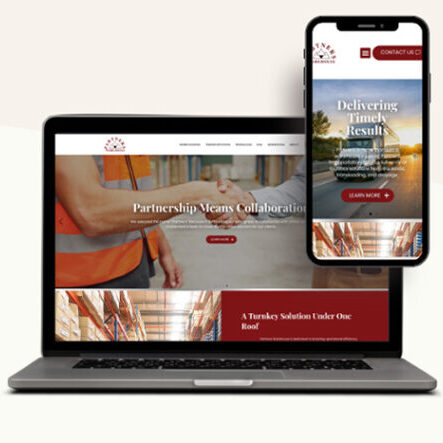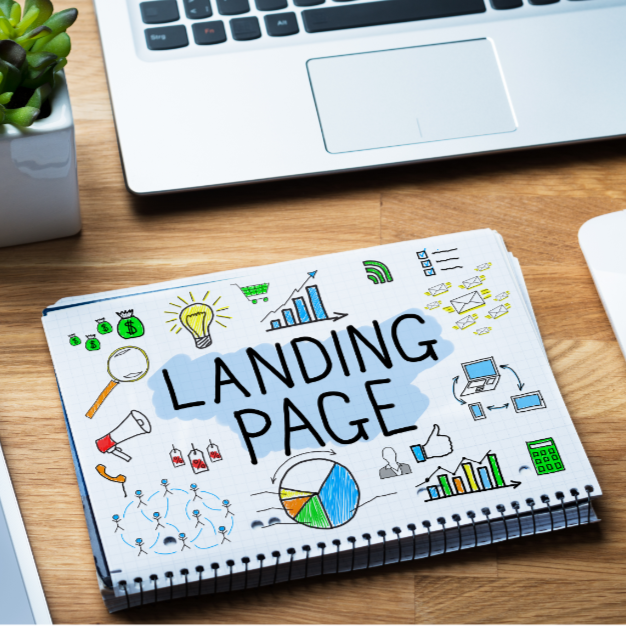Digital marketing is a critical component of success as a logistics and transportation company. With an average return on investment up to five times your initial spend, it’s also one of the fastest and most effective ways to outperform your competitors.
That’s not to say marketing is an overnight process, however. It may take weeks or even months to see results. And with so many frustrating, confusing, and overwhelming things to consider, many logistics companies avoid digital marketing altogether.
But the avoidance of digital marketing could be more harmful than you realize. As many as half of all small businesses don’t have a marketing plan — although it’s the primary reason 78% of businesses fail. And because a whopping 75% of transportation and warehousing businesses fail within the first 12 months, you need every possible support to ensure your business succeeds.
One of these supports includes ongoing education, especially when it comes to taking your first few steps. Industry experts Nathan Misirian and Andrew Guloveson believe marketing doesn’t have to be difficult, and decided to combine forces in a recent webinar to bring timely, relevant information to the industry.
Let’s take a closer look at the steps you need to take to create a digital marketing strategy for your logistics and transportation company.
3 Steps For Digital Marketing In Logistics And Transportation
Nathan and Andrew believe successful digital marketing starts with a solid understanding of each step in the process.
Let’s start with the most foundational step:
1. Strategy
Strategy refers to designing a marketing plan with goals and objectives to grow your business. They must also include carefully selected SMART goals, which are specific, measurable, achievable, relevant, and timely.
To begin the strategy step, you need to:
- Define your goals.
- Identify your target audience.
- Develop buyer personas.
- Evaluate your existing digital marketing presence.
- Carry out market research and competitor analysis.
- Use language that is really impactful to your target audience.
Let’s say your business’s marketing goal is lead generation. Ask yourself: what market research do you need to perform? How many leads do you need? Based upon this information, what do you need to do today to make sure you get results tomorrow?
Nathan suggests talking to a salesperson first. “Ask them to describe a few recent leads,” he says. “Then, use specific phrases a shipper might be looking for. You may want to interview a few specific clients and ask, ‘what would you search online to find us again?’ This should help you narrow your search into a smaller group of local prioritization.”
2. Execution
The execution stage is exactly what it sounds like: putting successful marketing ideas into actionable practice. Not only does this action bring clarity to the process, but it allows you to set the groundwork for future ideas as well.
Execution involves:
- Choosing the right digital marketing channels.
- Creating a content or calendar plan.
- Understanding the digital sales funnel.
- Locating your customers on the funnel.
Don’t forget to create a rhythm for each of your marketing activities. For example, you may want to focus on publishing one new blog per week, or update your social medias at 8 AM every weekday.
3. Measure
With your marketing strategy now complete, it’s time to evaluate their overall success. This may include hard numbers and KPIs, as well as qualitative feedback from customers, employees, and stakeholders.
Depending on your goals, this is also the stage where you:
- Create your KPIs.
- Set deadlines to measure those KPIs.
- Take advantage of digital marketing measuring tools
Keep in mind you should also calculate your ROI — the return on investment for your marketing strategy. As long as you’re making more returns than you’re using to market, you have successfully completed your first marketing cycle.
Develop Your Digital Marketing Strategy With HubTek’s ProfitQuest
Developing a logistics and transportation marketing plan can increase your chances of long-term success. They can also ensure your business makes progress towards its goals and discover new opportunities for growth in the future.
One of these growth opportunities includes ProfitQuest by Hubtek, a unique training, coaching, and strategic planning tool designed to increase your skill set as a logistics and transportation professional. You can explore dozens of self-guided courses on marketing, advertising, and more, lead by Google search marketing expert Nathan Misirian.
You can explore the ProfitQuest portal for yourself and start upskilling your marketing knowledge today. You’re also welcome to email the experts at Autumn Consulting, wow@autumnconsult.com, with any questions you may have.





